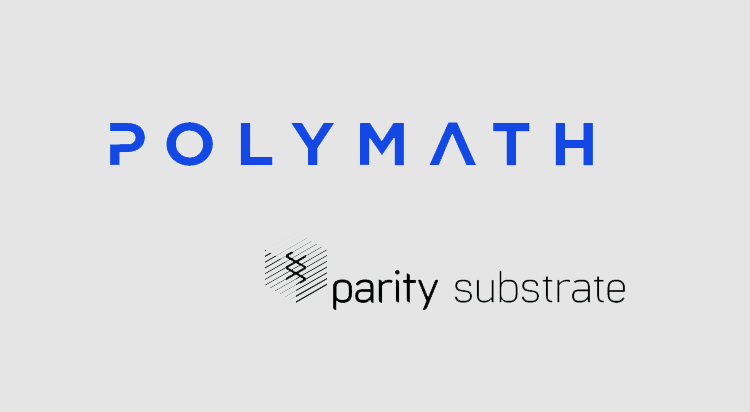The team of Polymath, a platform for security token issuance and management, declared back in March of this year during Consensus New York, that it had begun work on building a new base layer public blockchain from the ground up – codenamed Polymesh.
Now, Polymath has announced that it is building Polymesh on top of the Parity Substrate framework (they were previously using Ethereum). The new Polymesh blockchain layer code base has forthwith been moved from private to public under a GPL3 license.
“During the research phase of Polymesh, we considered multiple approaches, including forking an existing blockchain runtime like Geth for Ethereum, building our own network from scratch, and using a framework like Parity Substrate or the Cosmos SDK. The decision process involved many variables, involving technology, roadmaps, product fit, and community aspects.”
– The Polymath Team
Polymath’s feature points for building Polymesh on Substrate include:
Modularity
This is critical to the Polymesh architecture and was reflected by the approach taken by the Polymath ST20 protocol, where features, compliance rules, and functionality can easily be added to the core infrastructure through new modules, Parity Substrate follows a similar modular architecture. It comes production-ready with a library of modules covering things such as block production and finality, balance management and governance features as well as support for smart contracts.
The Polymath team will be extending these core Substrate capabilities by building a suite of modules that provide financial primitives at the base blockchain layer. These cover critical functionality such as identity, the regulated assets themselves, settlement and other key categories of capital market functionality.
Future Proof + Interoperability
Substrate builds on industry-wide standards, such as LibP2P and WASM. These decentralized technologies give Polymesh great options around interoperability with other tooling stacks as the development of the blockchain progresses. Another key benefit of building on Substrate is interoperability other blockchains. The Polkadot network, built by Parity using Substrate, is a relay network which allows parachains (other standalone blockchains connected to Polkadot) to communicate and exchange assets.
Finality, Governance and Network Upgrades
Polymesh is designed to be optimized for compliant assets operating in regulated markets. Due to this, the Polymath team said there are some core requirements for its network driven by their experience in building on Ethereum and many discussions with stakeholders including banks, trading houses, broker-dealers, exchanges, KYC service providers, custodians, and others.
Substrate ships with a finality mechanism called GRANDPA which provides deterministic guarantees around finality, rather than a probabilistic finality common to proof of work networks. According to Polymath, for capital markets, this is a critical concern with T+0 settlement being one key advantage of using public blockchains, and a necessity to avoid block re-organizations which can extend days on some major proof of work networks.
Another feature of Substrate Polymesh will leverage is their ‘Forkless Upgrades.’ Governance and forks in public blockchains is an area of concern to many institutions looking to engage with this type of technology, presenting severe risk in the event of a contentious fork and requiring institutions to build risk teams and associated competencies to deal with this eventuality. Substrate takes a different approach with their ‘Forkless Upgrades.’ The state transition function itself (i.e. the blockchain logic) is held under consensus on the network. This means that upgrades can be triggered directly through clear on-chain governance and simplifies the operational process of rolling out upgraded runtime software.
Community
Since its founding, the Polymath team has always been actively involved in the blockchain community, attending and sponsoring many major technical conferences, participating in hackathons, as well as participating in open source projects and initiatives. Polymath believes that it is a big benefit that Substrate offers a community of passionate developers and teams building tools, blockchains and infrastructure around the framework.


















